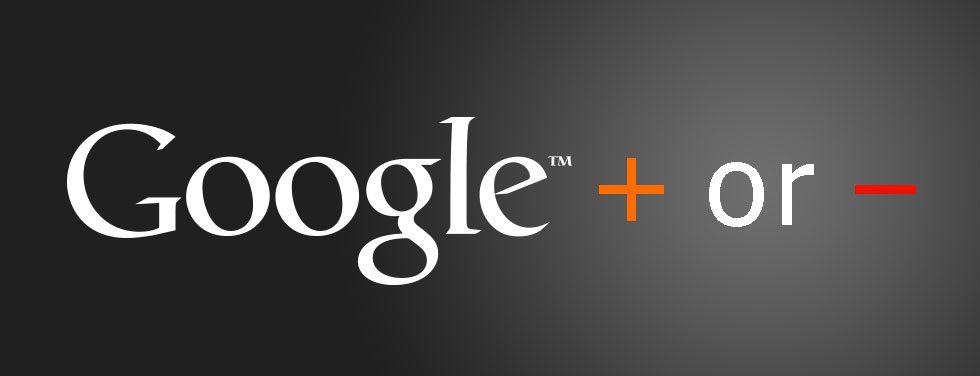Google Plus (+) is getting lots of publicity.
It is Google’s biggest, and most viable, challenge to Facebook after repeated flops and missteps into social networking.
What is it? Its essentially Facebook, integrated into the myriad of Google products, applications, and functions. Is it a big leap forward from Facebook? No. Is it going to revolutionize the way that we engage on another on social networks? Probably not.
The social circles feature is really the most important feature offered by Google in its development, allowing a more segmented breakdown of content reception and distribution, so you can ensure that you’re seeing what you want to see, and sharing what you want to share, with your friends, coworkers, family, etc.
This doesn’t really seem like that big of a jump forward however in social network development. People (lay people even) have been complaining about Facebook’s lack of this feature since its inception. The fact that Google was the first one to really build it out points to a more glaring flaw in the design of Facebook then to any sort of real innovation by Google.
What is strange about Google + is the surprising lack of ads. There are a full two, very tiny ones, to the right of the screen encouraging me to get Google + for my mobile device or to invite others to use it.
Will that change? Google is an ad whore so I can’t imagine that they’re long term plan is to subsist without extensive ad incorporation throughout Plus. IF they do, I think it will demonstrate a greater desperation on Google’s part to leap in front of the freight train that is Facebook. We all know that Google has been deathly afraid of Facebook for the last five years and has very much wanted to capture its user base to no avail.
By circumventing Facebook with a rather extensive (and expensive) development, a significant push to get publicity and new users, but not effectively monetizing it, Google is saying one of two things:
1. We make enough money elsewhere and Google + will act as a gateway drug to our other products that are revenue generators.
2. Facebook is taking enough money from us on a daily, weekly, monthly, yearly basis that there is $X.XX in trying to strangle them out. Avoiding a loss could be considered a + (even if it does cost some money to build up front).
The question then becomes, how will Google + affect the social networking landscape. I think we’ve already seen that people really have limited interest in duplicating the same efforts in two locations- look at MySpace and its woeful demise. MySpace did some things much better then Facebook, and offered quite a bit more functionality in some regards to its users. But Facebook trended better and now we have no more MySpace.
So what happens to Facebook now? Google is estimated to have already hit the 10 million user mark and is rapidly climbing. The extensions that allow you to share your Google + updates to Facebook will allow users to localize their efforts on one network and vicariously share to another. Of course, this also means that the secondary social network doesn’t get the impressions, visitors, or the ad revenue that they used to. Facebook needs to retain buzz and momentum, and needs to get Google to become the wannabe. I guarantee you that almost everything Google does, Facebook is going to try and counter by incorporating into their offerings. They’ll also need to innovate substantially to prove that Google has a lot to learn yet about social networking. If they can’t do those things, without coming across as a ‘me too’, they’ll flatline. Based on MySpace’s demise, they could do it rather quickly too.
And what about Google itself? Plus isn’t the revenue generator yet. They still are search ad dependent for most of their income and earnings. They have a great suite of widely adopted features and a huge segment of the mobile phone market (to all you Apple fanboy’s, you are little better then RIM at this point). But they’re putting a lot of dependency on their social network, quite publicly (the talks about bonuses being based on Plus performance, etc). If they fail at this, we might see a gradual decline of one of the internet’s founding fathers. I know that they didn’t actually found the internet, but without Google, we may not see it as widely adopted as it is today. Like Microsoft before them, Google could remain a household name, but a consistent shadow of its former glory. Google has to knock off Facebook or at least significantly divide the social networking sphere. If it can’t do that, how users search, come to businesses, generate ad revenue, could all become something different.
Bear in mind that change is good, only if you’re not the one who benefits from the status quo.
Rest assured, that our web design and marketing teams in Seattle and in Los Angeles are carefully watching our related industries to best discern how things will pan out and how they will affect how you do business.


